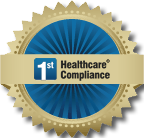Colonoscopies aren’t something a lot of people really want to talk about, but they are one of the most important preventative health screenings men and women can get. They’re so important that the month of March is dedicated to the topic—it’s Colorectal Cancer Awareness Month!
The role of a colonoscopy is to detect precancerous polyps in the colon, which doctors can remove before they turn into cancer. The screening test can also detect early-stage cancer, increasing the chance of successful treatment and survival. We sat down with Dr. Ahmad Kadhim, gastroenterologist at General Physician, PC, to ask three important questions that help shed some light on why this screening is absolutely worth discussing with your doctor.
Q: It used to be that age 50 was considered a good time to start getting regular colonoscopies, but now more doctors are saying to start at 45. Why?
A: Over the past 10 years the rates of colorectal cancer in young people throughout the United States have risen—so much so that the American Cancer Society and United States Preventative Task Force (USPSTF) recently lowered the recommended age to begin screening for colon cancer from age 50 to age 45.
No one really knows other causes for colorectal cancer development besides strong family history and unfortunate genetic inheritance. There are other theories which include environmental factors and unhealthy habits.
Q: Are there other things beside family history that increase a person’s risk of colon cancer?
A: Yes, and the common risk factors for colon cancer are similar to risk factors for many other serious health concerns. They include obesity, not getting enough exercise, poor dietary habits, excessive alcohol, smoking, increased red meats, and not eating enough fruits and vegetables.
Q. What about the in-home colon cancer screening kits that are available at drug stores—are those a reasonable substitute for a colonoscopy?
A: There is a limited role for them especially for individuals who do not want to consume bowel preparation or undergo a colonoscopy. They should be offered to average-risk individuals (with no family history of colon cancer) and no alarm-like symptoms such as abnormal weight loss or blood in the stool. It is important to keep in mind that this test is NOT a replacement for a colonoscopy in the sense that it does not detect early polyps or lesions like a colonoscopy. With colon cancer DNA-detection kits, the cancer is often diagnosed in late stages which can limit treatment success at times. It is also important to remember that at-home stool kit tests may result in false positive and negative results, which might lead to performing a colonoscopy anyways.
Need an appointment for your colonoscopy? CLICK HERE
For More Information about Colonoscopies CLICK HERE

 APPLY ONLINE TODAY!
APPLY ONLINE TODAY!





